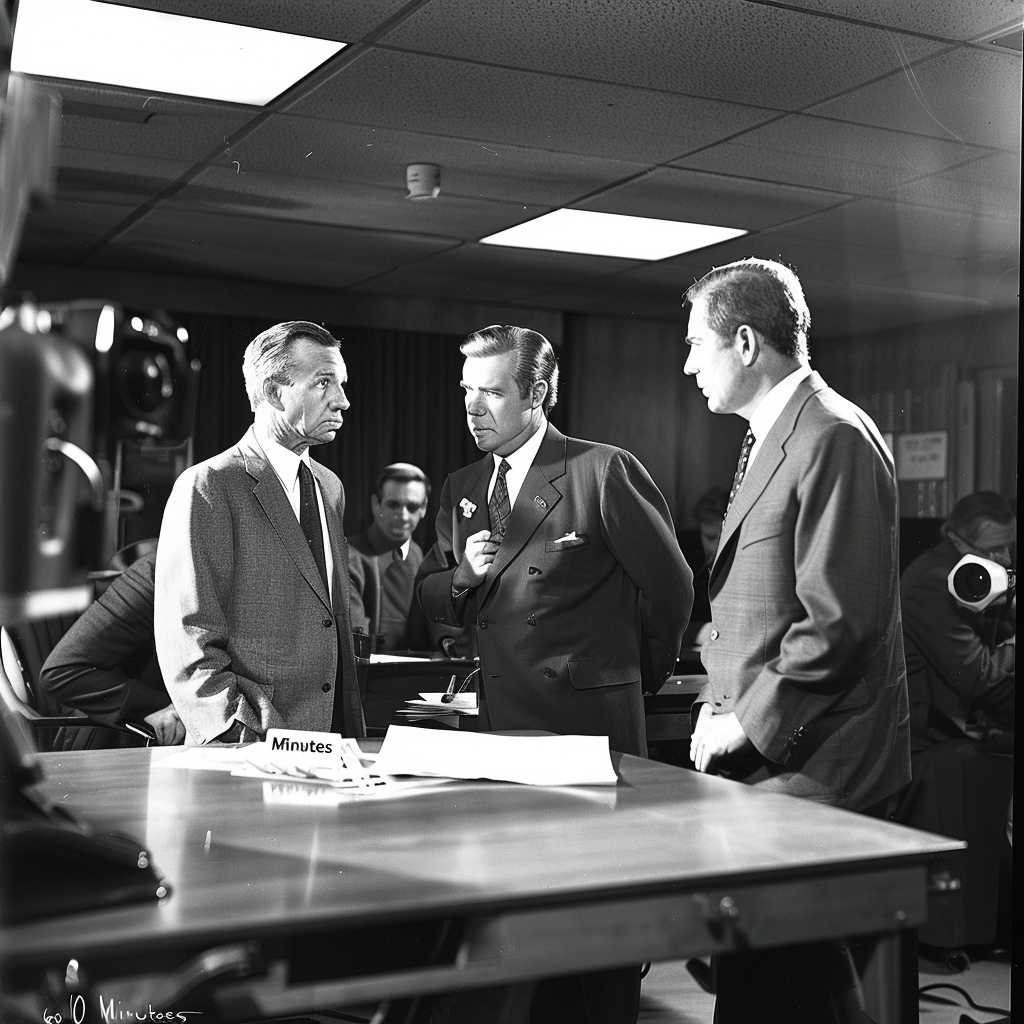The Evolution and Impact of 60 Minutes
60 Minutes, CBS’s groundbreaking newsmagazine, has become an iconic presence in American television journalism. Since its inception on September 24, 1968, the program has been renowned for its in-depth investigative reporting, compelling interviews, and feature segments that dig deeper into socio-political issues, culture, and current events. Its significance can’t simply be summarized; it spans addressing challenging topics to shaping public discourse.
The Genesis of a News Institution
60 Minutes was created by Don Hewitt and launched its first broadcast with hosts Harry Reasoner and Mike Wallace. Its format was revolutionary at the time: instead of the traditional uninterrupted news broadcast, 60 Minutes offered a “magazine” approach where several shorter stories—covering a broad spectrum of topics— were presented in one-hour segments. This format appealed to a wide audience due to its varied content and engaging storytelling technique.
Development of Signature Style and Format
Over the years, 60 Minutes established a style that is tangibly intense and serviceably dramatic. Use of “pointed questions,” iconic ticking stopwatch sound at the beginning of each show, and live follow-up interviews became hallmarks that audiences began to recognize and expect from investigative journalism. This method reshaped news broadcasting by presenting information in a more accessible and dramatized manner without losing journalistic integrity or depth.
Legacy of Renowned Journalists and Coverage
The roster of journalists who have worked on 60 Minutes reads like a who’s who of broadcast journalism. From founders Mike Wallace and Harry Reasoner to Morley Safer, Ed Bradley, Lesley Stahl, Steve Kroft, to newer correspondents like Bill Whitaker, each brought their unique investigative style to the program. Furthermore, the show’s coverage has spanned significant historical events from political scandals like Watergate to human interest stories and profiles of notable figures.
Controversies and Criticisms
As much as 60 Minutes is celebrated for its journalistic success, it has also faced its share of controversy. The program hasn’t shied away from hard-hitting stories that sometimes pushed the boundaries of journalism ethics. The “Tobacco Wars” broadcast in 1996 became one of the most significant journalistic controversies when it exposed the tobacco industry’s knowledge about the addictiveness of nicotine; CBS was initially unwilling to air the interview with whistleblower Jeffrey Wigand due to potential legal retributions.
Adapting to a Changing Media Landscape
Audiences’ news consumption habits have shifted dramatically with the advent of digital media and round-the-clock cable news networks. 60 Minutes recognized these changes early on and has continuously adapted their delivery while maintaining the integrity of their long-form reporting style. By embracing online platforms for distribution and interactive content alongside its televised broadcasts, it has continued to maintain relevance in a continuously evolving media industry.
Educational Influence and Social Impact
Beyond simply reporting the news, 60 Minutes routinely contributes to society by delivering informative stories that have gone on to influence policy decisions, inspire social change, and educate the public on critical issues. Segments often shed light on underreported situations around the world such as environmental issues, international conflicts, or systemic failures within public institutions.
A Tribute to Don Hewitt’s Vision
Don Hewitt’s vision for 60 Minutes might be his lasting legacy—not just for initiating what would become one of America’s most respected news programs but for upholding rigorous standards for in-depth journalism throughout changing times. His model has influenced numerous investigative reporting formats worldwide.
Ratings Success and Public Recognition
60 Minutes is not just a critical success story but has famously been a ratings hit for CBS. It consistently ranks among the most-watched network programs each week. In addition to regularly scooping industry accolades — including numerous Emmy Awards and Peabody Awards — which speak both to its quality storytelling and impact.
